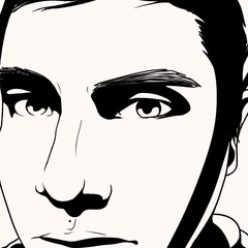Our project is meant for those who are interested in the history of Canada and those who are interested in hearing a unique and beautiful language. Our project will be a simple memory game made in Scratch that will teach people where the locations of said languages are found and the history of the people that spoke it.
Sources: https://www12.statcan.gc.ca/census-recensement/2011/as-sa/98-314-x/98-314-x2011003_3-eng.cfm
https://www12.statcan.gc.ca/census-recensement/2016/as-sa/98-200-x/2016022/98-200-x2016022-eng.cfm
https://www.britannica.com/topic/Algonquian-languages
https://en.wikipedia.org/wiki/Inuit_languages
https://www.britannica.com/topic/Athabaskan-language-family
https://en.wikipedia.org/wiki/Salishan_languages
https://en.wikipedia.org/wiki/Iroquoian_languages
https://en.wikipedia.org/wiki/Tsimshianic_languages
https://en.wikipedia.org/wiki/Tlingit_language
https://en.wikipedia.org/wiki/Kutenai_language
“13. We call upon the federal government to acknowledge that Aboriginal rights include Aboriginal language rights.
14. We call upon the federal government to enact an Aboriginal Languages Act that incorporates the following principles:
- Aboriginal languages are a fundamental and valued element of Canadian culture and society, and there is an urgency to preserve them.
- Aboriginal language rights are reinforced by the Treaties.
- The federal government has a responsibility to provide sufficient funds for Aboriginal-language revitalization and preservation.
- The preservation, revitalization, and strengthening of Aboriginal languages and cultures are best managed by Aboriginal people and communities.
- Funding for Aboriginal language initiatives must reflect the diversity of Aboriginal languages.
15. We call upon the federal government to appoint, in consultation with Aboriginal groups, an Aboriginal Languages Commissioner. The commissioner should help promote Aboriginal languages and report on the adequacy of federal funding of Aboriginal-languages Initiatives.
16. We call upon post-secondary institutions to create university and college degree and diploma programs in Aboriginal languages.”
From 1831 onwards, the Canadian government instituted the Residential School system. These schools were meant to convert aboriginal children from their own beliefs and culture to that of the dominant Canadian culture. This meant that many aboriginal students who attended these boarding schools were not permitted to speak their own language and essentially be stripped of everything that they had been taught growing up. This led to many languages that were dominant in Aboriginal culture becoming endangered or extinct. The Residential School system continued on until 1996, with the last school being shut down in Saskatchewan.
While the Residential School system is about 25 years long gone, it still remains a problem within the Aboriginal community with people still suffering from the effects of the system. Which includes many people refusing to speak their language or completely forgetting it altogether. This led to the push of preservation of the Aboriginal language as, like was mentioned before, many of them are now considered endangered to be lost in time.
But, not all is lost though. Many languages still exist in Canada that have people who speak it regularly and refuse to let this rich part of Canada’s linguistic mosaic die.
